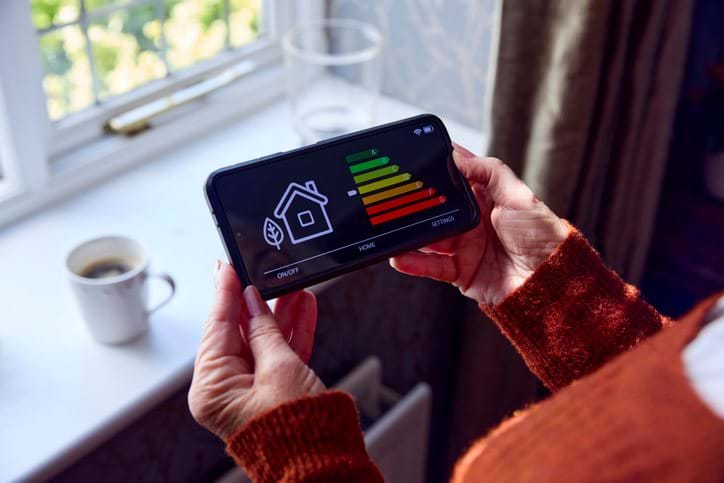Last year, the government introduced a £400 energy discount in the form of a non-repayable grant to help households cope with rising bills. Unfortunately, the scheme has not been renewed this year. Despite a new energy price cap being introduced, energy prices are set to increase again in January 2024. Here’s how you can prepare now and save money with this easy Peabody New Homes guide.
Install smart plugs
A great way to monitor and manage your energy consumption is by installing smart plugs into your home. These affordable intelligent alternatives to regular plugs enable you to track how much energy your different devices require to run.
They can also be used to schedule shutdowns. That means that you decide when your appliances need to be turned off. It’s very convenient: you no longer need to remember to turn off your electronic devices when you’re not home or when you're not using them. That way you’re also getting rid of phantom loads. These refer for example to the energy consumed by a TV that’s put on standby as opposition to fully turned off.
Get a smart meter for free through your energy provider
The UK government is aiming to have offered a smart meter to every household by 2025. This decision has been taken because of the great energy savings this kind of meter can help achieve. Energy providers are now required to install smart meters for free. The cost is basically spread across all households through energy bills, so you might as well benefit from it.
It is a really helpful tool to understand your energy consumption as it tells you how much energy you are using. Because you no longer have to manually read your meter and send that information to your energy provider, you will be getting more accurate bills and limit the risk of paying too much or too little. You can therefore avoid any bad surprises down the line. They say knowledge is power and that applies here too because by understanding your energy consumption, you can more easily cut it up. The smart meter gives advice on optimal times to use energy and different pricing options.

A smart meter is easy to use and will help you understand your energy consumption
Adjust your boiler settings
The way boilers work is by heating up the water to a certain temperature before it’s sent into the radiators of your house. However, a lot of boilers are set to a temperature that is higher than it needs to be in order to achieve A-rated efficiencies. The good news is, for most boilers you can actually change the flow temperature. Make sure you are equipped with a condensing boiler, as they are designed to operate best at a lower temperature. You can then set it up to be below 55 °C for more energy efficiency and cheaper bills.
Don’t forget to make sure your boiler gets serviced annually by a professional. It is important to verify that it is working safely and efficiently. That will prevent any issues down the line and will also help you achieve energy efficiency in your home, with some great savings as a bonus.
Choose energy-efficient appliances when replacing broken ones
If you have made a list of electronic devices in need of an upgrade around your house, refrain from wanting to buy the cheapest. It seems like a good idea at first, but some of these appliances will then cost a fortune to run. Draining your finances in the long term and making your home less sustainable.
For example, if your washing machine needs to be replaced, make sure to compare which machines work best on lower temperature wash, as they consume less energy.
Find out about energy efficiency grants
The UK government offers a range of financial aids to make your home more sustainable when it comes to your energy consumption. 12 billion pounds have been invested in Help to Heat schemes that you can benefit from to make your home warmer and cheaper to heat this winter.
For example, you can receive a grant through the Boiler Upgrade scheme in order to replace your heating system with a heat pump or biomass boiler. These don’t rely on fossil fuel, which is better for the planet but also for your wallet in the long run. You can discover more about this scheme and others on the dedicated Help to Heat page of the government website.
You can now explore 5 different ways to make your home more energy efficient. That being said, if you are home alone, it's cheaper and more efficient to warm yourself up with a hot water bottle, an electric blanket and thermal clothing.